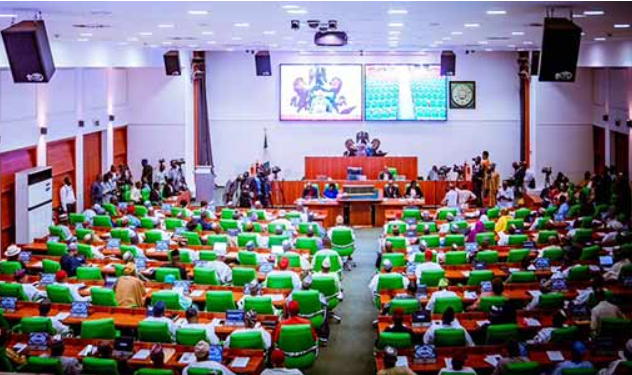By Jemimah Wellington, JKNMedia Reporter
THE NIGERIA’s House of Representatives has advanced a pivotal bill to the second reading, aiming to amend the Court of Appeal Act and increase the number of its justices from 90 to 150. This legislative move seeks to enhance the efficiency and speed of justice delivery across Nigeria.
In addition to increasing the total number of justices, the bill mandates the appointment of a minimum of six justices in every Judicial division of the Court of Appeal.
This provision, the House notes, is designed to ensure more robust judicial processes and reduce delays in legal proceedings.
Sponsored by Hon. Dr. Patrick Umoh, who represents the Ikot Ekpene/Essien Udim/Obot Akara federal constituency of Akwa Ibom state, the bill was passed during a plenary session presided over by Deputy Speaker Benjamin Kalu.
The full title of the bill is “A bill to amend the Court of Appeal Act, Cap C.36, Laws of the Federation of Nigeria, 2004 to increase the number of justices of the Court and provide for appointment of a minimum of 6 justices in every Judicial division of the Court for speedy and efficient justice delivery and to improve citizens’ access to justice and related matters.”
During the debate on the bill’s general principles, Hon. Umoh highlighted the historical context, noting that the Court of Appeal (Amendment) Act of 2005 had set the number of justices at 70. This number was later increased to 90 in the 2013 amendment.
However, with the recent creation of new judicial divisions in Kano, Gombe, Awka, Asaba, and other locations, the current number of justices is deemed insufficient.
Umoh emphasized that the rise in the volume of cases necessitated the establishment of these new divisions, which in turn has led to an increased workload for the justices. He pointed out that many divisions currently lack the minimum of six justices, preventing the Court from holding simultaneous panel sittings and thus delaying the judicial process.
He further argued that divisions with significant caseloads, such as Abuja and Lagos, should have at least nine justices to allow for three parallel sittings. This would address the backlog of cases and expedite the appellate process.
Moreover, Umoh noted that the same limited pool of justices also serves on Election Appeal Tribunals, further exacerbating delays in justice delivery.
The proposed amendment aims to alleviate these issues by increasing the number of justices, thereby improving the quality and efficiency of judicial decisions.
The amendment is expected to provide citizens with greater access to justice and the benefits of democracy. Additionally, it aims to reduce the workload on appellate justices, potentially extending their professional longevity and improving overall judicial outcomes.





